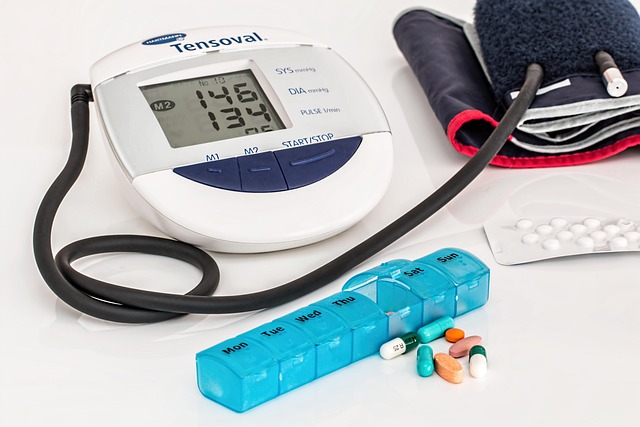Chronopharmacology: Timing Medicine for Optimal Health
The timing of medication intake could be as crucial as the medication itself. Welcome to the fascinating world of chronopharmacology, where the intersection of our body's internal clock and drug efficacy opens new frontiers in personalized medicine. How can aligning our medication schedules with our biological rhythms enhance treatment outcomes and minimize side effects? Let's explore this cutting-edge field that's reshaping our approach to health and wellness.

Chronopharmacology leverages this understanding, aiming to synchronize drug administration with the body’s natural rhythms. By doing so, it seeks to enhance therapeutic effects while reducing adverse reactions. This approach represents a paradigm shift in how we view and administer medications, moving beyond the one-size-fits-all model to a more personalized, time-sensitive strategy.
The Science Behind Timed Dosing
At the heart of chronopharmacology lies the concept of chronokinetics – how the body processes drugs at different times of the day. Studies have shown that the absorption, distribution, metabolism, and excretion of medications can vary significantly depending on the time of administration.
For instance, research has found that taking certain blood pressure medications at night, rather than in the morning, can lead to better blood pressure control and reduced risk of cardiovascular events. This is because blood pressure naturally dips at night, and timing the medication to coincide with this natural rhythm enhances its effectiveness.
Similarly, the efficacy of chemotherapy drugs has been shown to vary based on the time of day they’re administered. Some cancer cells divide more rapidly at certain times, making them more susceptible to treatment during these periods. By aligning chemotherapy with these cellular rhythms, oncologists can potentially improve outcomes while reducing side effects.
Chronopharmacology in Practice
Implementing chronopharmacology in clinical practice requires a deep understanding of both pharmacology and chronobiology. Healthcare providers must consider not just the type and dosage of medication, but also the optimal timing for each patient.
One area where chronopharmacology has shown promise is in the treatment of asthma. Asthma symptoms often worsen at night due to natural fluctuations in lung function and inflammation. By timing corticosteroid inhalers to be used in the late afternoon or early evening, patients can preemptively address these nighttime symptoms, leading to better overall control of their condition.
Another example is the treatment of rheumatoid arthritis. The symptoms of this autoimmune condition often peak in the early morning hours. Timed-release medications that deliver higher doses during these peak symptom periods have shown improved efficacy in managing pain and stiffness.
Challenges and Future Directions
While the potential of chronopharmacology is exciting, its implementation comes with challenges. Individual variations in circadian rhythms, lifestyle factors, and genetic differences can all impact the optimal timing of medication. This complexity necessitates a highly personalized approach to treatment.
Advancements in wearable technology and artificial intelligence are opening new possibilities for real-time monitoring of individual circadian rhythms. These tools could allow for even more precise timing of medication administration, tailored to each patient’s unique biological clock.
Future research in chronopharmacology is likely to focus on developing more sophisticated drug delivery systems that can release medications at specific times to align with the body’s rhythms. This could lead to the development of “smart” pills that respond to the body’s internal cues, delivering the right dose at the right time.
Implications for Public Health
The implications of chronopharmacology extend beyond individual patient care. At a public health level, this approach could lead to more effective disease management strategies and potentially reduce healthcare costs by improving treatment outcomes and minimizing adverse effects.
Moreover, chronopharmacology aligns with the growing trend towards personalized medicine. By considering not just what medication to prescribe, but when to prescribe it, healthcare providers can offer more tailored and effective treatment plans.
Chrono-Wisdom: Timely Health Insights
-
Morning cortisol peak: Taking anti-inflammatory medications in the evening can better target morning joint stiffness
-
Nighttime liver efficiency: Cholesterol-lowering statins are often more effective when taken before bedtime
-
Afternoon metabolic boost: Some diabetes medications may be more effective when timed with natural insulin sensitivity peaks
-
Evening blood pressure dip: Hypertension medications taken at night can capitalize on natural blood pressure lowering
-
Circadian gene expression: Over 50% of our genes show circadian rhythmicity, influencing drug metabolism throughout the day
As we continue to unravel the intricate relationship between our internal clocks and health, chronopharmacology stands at the forefront of a new era in medicine. By aligning our treatment approaches with the body’s natural rhythms, we open the door to more effective, personalized, and holistic healthcare strategies. The future of medicine isn’t just about what we take, but when we take it – a simple shift in timing that could revolutionize how we approach wellness and healing.






